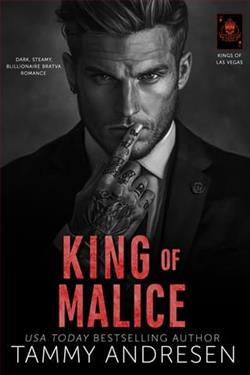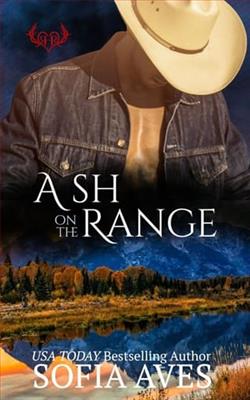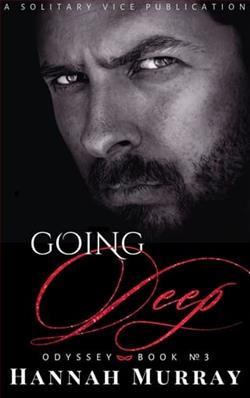Page 104 of The Road to Avalon
I prayed in terrified silence, unsure if there’d be anyone listening. To God, to the gods of the Dark Age world. To Gwynn ap Nudd himself.Let us not have taken too long to get here. Let there be no hidden complications. Let him live. Please, let him live.
We seemed to take forever to arrive at the hospital. The local one must have been too small. At last, our ambulance drew up outside a porticoed entrance and the paramedics swung the doors open. A doctor stood waiting for us.
In a trance, I didn’t hear their words. The noises and smells of the surrounding town battered on my eardrums: the stink of exhaust fumes, the smell of tarmac, the honking of horns, the distant roar of engines and the shouts of voices.
I followed the paramedics as they wheeled the stretcher into a room filled with men and women in scrubs and masks, who crowded round to shift Arthur onto a bed. Someone told me to wait outside. I protested but was ushered out. Alone, afraid, I stood with my nose pressed to the doors, my hands splayed against the glass, muttering my prayer over and over again.
The two policemen, who’d followed the ambulance in their car, approached with something akin to diffidence, notebooks in hand. “Mrs. King. Can you give us some details of how this happened?”
I snapped back into their world. I’d have to talk to them. This was what happened in the twenty-first century. And it was going to be tricky.
Without shifting my gaze from what was going on around Arthur’s bed, I nodded. “I’m not moving. You’ll have to talk to me here.”
The older of the two opened his notebook. “Can you tell us how your husband came by his injuries?”
I couldn’t very well say in battle. A partial truth would have to do. “Something fell on him.” Inside the treatment room they were cutting off his clothes. One of them had fetched bolt cutters for his mail shirt.
The policeman scratched his head. “What was it fell on him?”
In for a penny. “His horse.” The mail shirt was cast aside. They were attaching monitors to his bruise-mottled chest. A green line blipped across a screen. I pressed my hands harder against the glass in the door, willing him to fight. Why couldn’t these policemen leave me alone? Did they possess no compassion or understanding?
The first policeman frowned, and his colleague pulled a disbelieving face. “On top of Glastonbury Tor? How did you get a horse up there, and where had it gone when you were found? We didn’t see any horse up there.”
“It didn’t happen there,” I said, aware that despite my efforts to be evasive, I was digging myself in deeper with every answer. The doctors were working on Arthur’s chest just as I’d seen doctors do in the hospital soap I used to watch, in another life. A drain. They were draining blood from his chest to help him breathe. I had no idea what that was called.
“Well, if it didn’t happen there, how did he end up on top of the Tor tied to an old door? And with what looked like a pair of broken spears splinting his leg. Did someone do this to him?”
“I don’t remember,” I snapped, deciding amnesia was the easiest option. “Can you please leave me alone? That’s my husband in there. I don’t want to talk right now. Just go away, can’t you?” I let my voice rise in frustration, and they both stepped back, suddenly wary, as though I might be dangerous.
The first policeman shrugged. “Don’t go thinking we’ve finished with you, though,” he said, managing to sound threatening. “We’ll have questions for your husband when he wakes up, as well. If your stories don’t tally, we’ll be taking steps.”
With a final suspicious glare, they departed.
I waited. A nurse came out and ignored me. Another went in. I could see the doctors talking but not hear what they said. At last, one of them came out. “Mrs. King?”
I nodded. How weird to be called Mrs. anything.
“Your husband has crush injuries. We’re taking him up to theatre now. We did a portable X-ray, but he needs a scan. He’ll have to have pins inserted in his leg– both upper and lower. His broken ribs should heal by themselves, and we’ve dealt with his haemothorax– we’ll leave the drain in for a day or two. And he has a concussion. The surgeons will deal with his other wounds at the same time. We’ve stopped the bleeding, but they need stitching.” He paused, brow furrowed. “If I didn’t know better, I’d say they were sword wounds.” His eyes narrowed. “And he was wearing an empty scabbard. Is this a reenactment gone wrong?”
A feeling of déjà view swept over me. Hadn’t I thought I’d landed in a historical reenactment when I’d first fallen back in time? The circularity of the world amazed me.
I shook my head. “I don’t know.” Best to stick with ignorance before things became even more complicated. “Is he going to be all right?”
He gave me an encouraging smile. “Don’t worry. We can deal with all of this. I’ll have one of my nurses take you to the relatives’ room near the operating theater where you can wait.” He beckoned a passing nurse. “He’ll be a while in theater, so Robin will find you something to eat and drink.”
The nurse, a dumpy girl in blue scrubs with her ginger hair in a tight French plait, smiled at me out of friendly blue eyes as the doctor turned away. “I can do better than that,” she said. “I can find you some clean clothes as well. And how would you like a shower?” She wrinkled her freckled snub nose and touched my bloody sleeve. “I bet you’ll be glad to get out of these. Were you at a fancy-dress party?”
She had it right. I would be very glad of clean clothes. She took me to a bathroom near the relatives’ room and gave me a set of scrubs like her own, and a pair of rubber clogs. “I’ll put a pack of sandwiches and a can of drink on the table in the relatives’ room for you when you come out. It’s up there, on the left. And I’ll come and tell you when your husband’s out of theater and you can go and see him. Don’t worry. The surgeon operating is the best in the business. You couldn’t have come to a better hospital.”
The shower had shampoo and soap supplied, and I spent longer in there than I’d intended, luxuriating in the feel of the hot water on my skin and how clean I felt afterwards. I braided my wet hair and put on the scrubs and shoes, and found a plastic bin bag to stuff all my dirty clothes into. Then, carrying the bag, I proceeded to the relatives’ room.
I peered through the small square glass window in the door, the wariness of my old life not having left me, hoping for it to be empty. It wasn’t. Long floor to ceiling windows took up the far wall, the blinds open on the bright lights of the town sparkling in the darkness. A man stood by the window, staring out. Tall and thin and wearing jeans and a black T-shirt, his untidy, short brown hair stood up around his head as though he’d been running his fingers through it in desperation. Maybe he had someone to worry about in one of the other operating theaters. Like me.
Taking a deep breath, I put my hand on the door, then paused. Something vaguely familiar hung about the man’s stance. Nonsense. I couldn’t possibly know him. How long had I been gone? There wouldn’t be anyone here I knew.
I pushed open the door and went inside. The man didn’t move. He must have heard me, but he didn’t budge an inch. Just kept on staring out of the window. As I sat down on one of the many fake-leather, pastel-upholstered armchairs lining the room, I had a brief glimpse of his reflection, distorted in the glass.
The thought resurfaced. Did I know him? I narrowed my eyes and studied his rear view.















